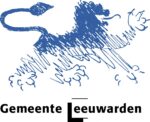
Before policy is set in stone, ask young people: ‘Is the Gig economy a liberating new form of self-employment or a new form of exploitation?’.



A Gig economy represents an environment in which temporary positions are common and organisations contract with independent workers for short-term engagements. Surprisingly little is known about the realities of ‘gig work’ and there is a growing need to reflect on how society deals with these changes in a manner that protects and educates vulnerable young people.
By involving vulnerable youth in policy making processes, young people are given the opportunity to adopt leadership roles and develop competences, gain skills and practical experience which will lead to more effective decision-making in their lives in the future. Involving youth is about recognizing the benefits youth offer to organizations and whole communities.
Giggin’Policy aims
Giggin’ Policy purpose is to:
Youth in the lead
The whole idea behind the gig economy for its supporters is that individuals – who work as freelancers and do not sign any stable contract of employment – can sell their work on a task to task base. Depending on where one is looking at, the gig economy represents either a promising economic model which would enable individuals to unleash their full potential and to be more creative as freelancers; or it is a temporary and unsuitable ideal which needs to be regulated by competent policymakers before too late?
The Giggin’ Policy project is founded on the vision that young people are the source of tomorrows economy and therefore need to be in the lead in designing future strategies for regions. Two themes in the Giggin’ Policy project are ‘youth initiative’ ‘social inclusion’ and ‘gig economy’.
With all policy makers on topic of the gig economy, rarely youth themselves are asked about their opinion on this topic.
Dynamics are shifting
The specific context that Giggin’ Policy addresses is the framework of the gig economy. Labour market dynamics are shifting rapidly driven by technological progress and globalization. At the same time, what young people want is changing. They are working longer, learning more and seeking a better balance between work and home. Not everyone wants to engage as a full-time employee and more and more organizations don’t want that either. The ‘Monday-Friday 9-5 job for life’ has moved on and much of the jobs growth over the last 10-15 years has occurred in non-traditional, alternative ways of working. Giggin’ Policy facilitates knowledge generation about the gig economy and shares, discusses and develops effective methods to address the risks and opportunities of the gig economy that young people are facing.
Project Outcomes
The element of innovation in the Giggin’ Policy project are best reflected in the three implementation work packages the project entails:
 Friesland College, The Netherlands
Friesland College, The Netherlands
 Learning Hub Friesland, The Netherlands
Learning Hub Friesland, The Netherlands
 ROC Friese Poort, The Netherlands
ROC Friese Poort, The Netherlands
 Municipality of Leeuwarden, The Netherlands
Municipality of Leeuwarden, The Netherlands
 Meath Country Council, Ireland
Meath Country Council, Ireland
 Dundalk Institute of Technology,Ireland
Dundalk Institute of Technology,Ireland
 Newry & Mourne Enterprise Agency, Ireland
Newry & Mourne Enterprise Agency, Ireland
 Barcelona Chamber of Commerce, Spain
Barcelona Chamber of Commerce, Spain
 Centre of Commercial Education, Spain
Centre of Commercial Education, Spain
 Kauno Statybos Ir Paslaugu Mokymo Centras, Lithuania
Kauno Statybos Ir Paslaugu Mokymo Centras, Lithuania
 Erasmus+
Erasmus+